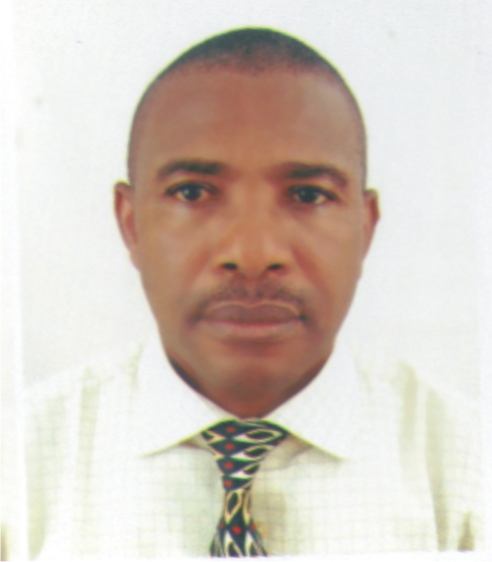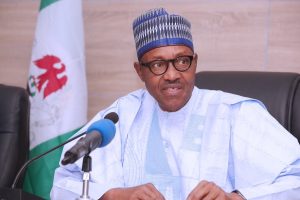Nigeria’s South-south subnational leaders’ wish-list majors on greater control of oil resources

November 25, 2020608 views0 comments
- Immediate privatization of two refineries in Port Harcourt, Warri
- Relocation of IOCs headquarters, oil subsidiaries to region
- Release of NDDC funds, East-West road completion, others
- But DFI experts urge corporate governance by the states
At the Presidential meeting with leaders of Nigeria’s South-south subnational region in Port Harcourt, Rivers State on Tuesday, where Ibrahim Gambari, the chief of staff to President Muhammadu Buhari, led the federal government delegation, the region’s leaders presented a heavy wish-list, which majored on the region having greater control of crude oil resources, Nigeria’s key foreign revenue earner.
Read Also:
The meeting, which had earlier been cancelled at the instance of the Presidency without a reason, saw the attendance of virtually top shots in the geopolitical zone comprising six states: Governors Udom Emmanuel of Akwa Ibom; Douye Diri of Bayelsa; Ben Ayade of Cross Rivers; Ifeanyi Okowa of Delta; Godwin Obaseki of Edo and the host, Nyesom Wike of Rivers.
Others were: Godswill Akpabio, minister of Niger Delta; Timipre Sylva, minister of state for petroleum resources; Goddy Jedy Agba, minister of state, power; Festus Keyamo, minister of state for Niger Delta; Osagie Ehanire, minister of health; and Lai Mohammad, the minister of information. Chibuike Rotimi Amaechi, the minister of transportation was, however, absent.
Other eminent leaders present included: the national chairman of the Pan-Niger Delta Forum (PANDEF), Idongesit Nkanga, a retired air commodore; former president, Nigerian Bar Association, Onueze Okocha (SAN); among others.
Governor Ifeanyi Okowa of Delta State and chairman of the South-south zone Governors’ Forum presented the zone’s common position which captured the following demands: immediate relocation of headquarters of oil multinationals to their operational bases in the South-south region; immediate relocation of government-owned oil subsidiaries from Lagos and Abuja to the region; immediate completion of the 675-km East-West road under construction, which was initially awarded in 2006 at the cost of N726bn by former president Olusegun Obasanjo.
The road is a dual-carriageway intended to open up the entire oil-rich Niger Delta states, linking each to the other, and with the industrialized Nigeria’s Southwest region. The East West Road stretches from Calabar in Cross River State to Warri, Delta State, with an additional 23.9 km included by former President Goodluck Jonathan to link Calabar with the oceanic town of Oron in Akwa Ibom State. The road’s concept was to link all major oil towns, beginning from Oron in Akwa Ibom to Calabar (Cross River) snaking across the Cross River and the Atlantic Ocean, up to Itu and Eket (Akwa Ibom), Port Harcourt and Ahoada (Rivers), Kaiama (Bayelsa), and Warri (Delta), up to Benin (Edo). From here, a traveller to Lagos would link up Okada Town (Edo), straight down to Ore (Ondo), Sagamu (Ogun), and then Lagos.
Other demands by the South-south leaders read out by Governor Okowa were: immediate privatisation of the two refineries in Port Harcourt and the one in Warri for effective products supply and distribution. The two refineries have combined nameplate capacity of 335,000 barrels per stream day (bpsd), but all of them, plus the one in Kaduna have been comatose for much of Buhari administration’s term.
The South-south leaders also called for “immediate implementation of the consent judgment entered in the Supreme Court Suit No: SC/964/2016 to enable the South-south region get its share of $55 billion shortfall of collection on deep offshore and inland basin production sharing contracts. Also, they want the release of all funds due to the Niger Delta Development Commission (NDDC) and that, henceforth, all NDDC projects must be done in consultation with the member state governors.
They also want reactivation of seaports in Calabar, Port Harcourt and Warri, which constitute major part of the Eastern Ports. Additionally, they want the federal government to undertake the Lagos–Calabar rail line – known as the coastal rail line.
Okowa rounded off the South-south region’s common demand with institution of true federalism, resource control, fair revenue sharing and state police, which he described as the “best ingredients to achieving a better Nigeria.”
However, economic analysts posit that the South-south leaders’ demands must be matched with precision rebranding and good corporate governance to get the region more stable, and rid of debilitating insecurity, and harsh investment climate.
For instance, despite its rich oil and gas resources, foreign direct investments (FDIs) into the region has been dwindling in the last decade, for reasons, which economic analysts said, were associated with poor corporate governance, insecurity, and absence of knowledge-driven economy.
In seven years – 2013 and Q1 2020, the South-south region barely received FDI inflows of $474.13 million ($474,133,792 million) out of Nigeria’s total $92.28 billion ($92,284,945,105.59), according to statistics gleaned from the National Bureau of Statistics (NBS).
Some development and finance experts said the waning FDI inflow into the South-south region was traceable to militancy, sea piracy, kidnapping, community hostility, poor infrastructure and bitter political rivalry, including failure by Nigeria to pass the Petroleum Industry Bill (PIB) that has continued to discourage multinational oil companies from making long-term hydrocarbon investment commitments in the country.

